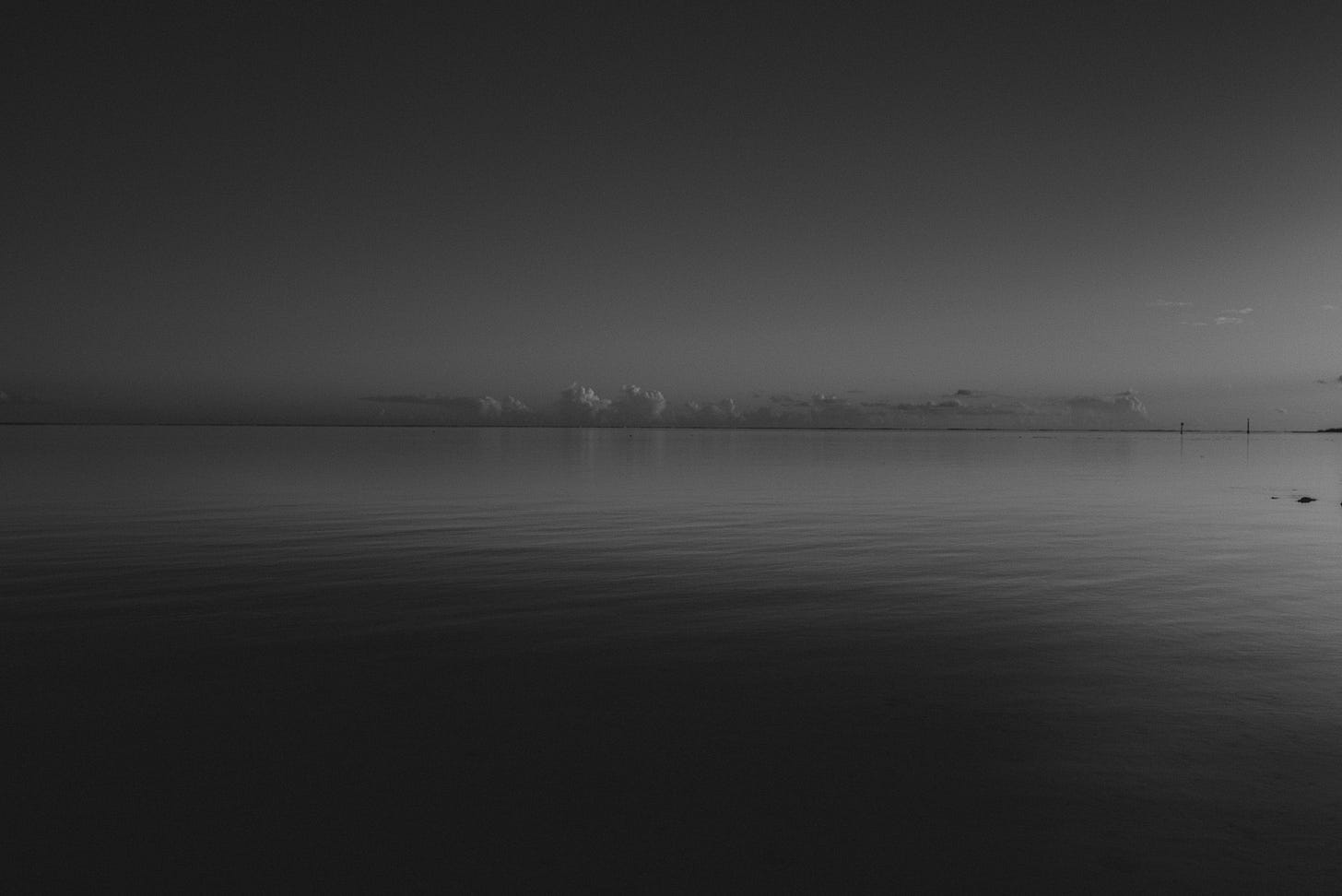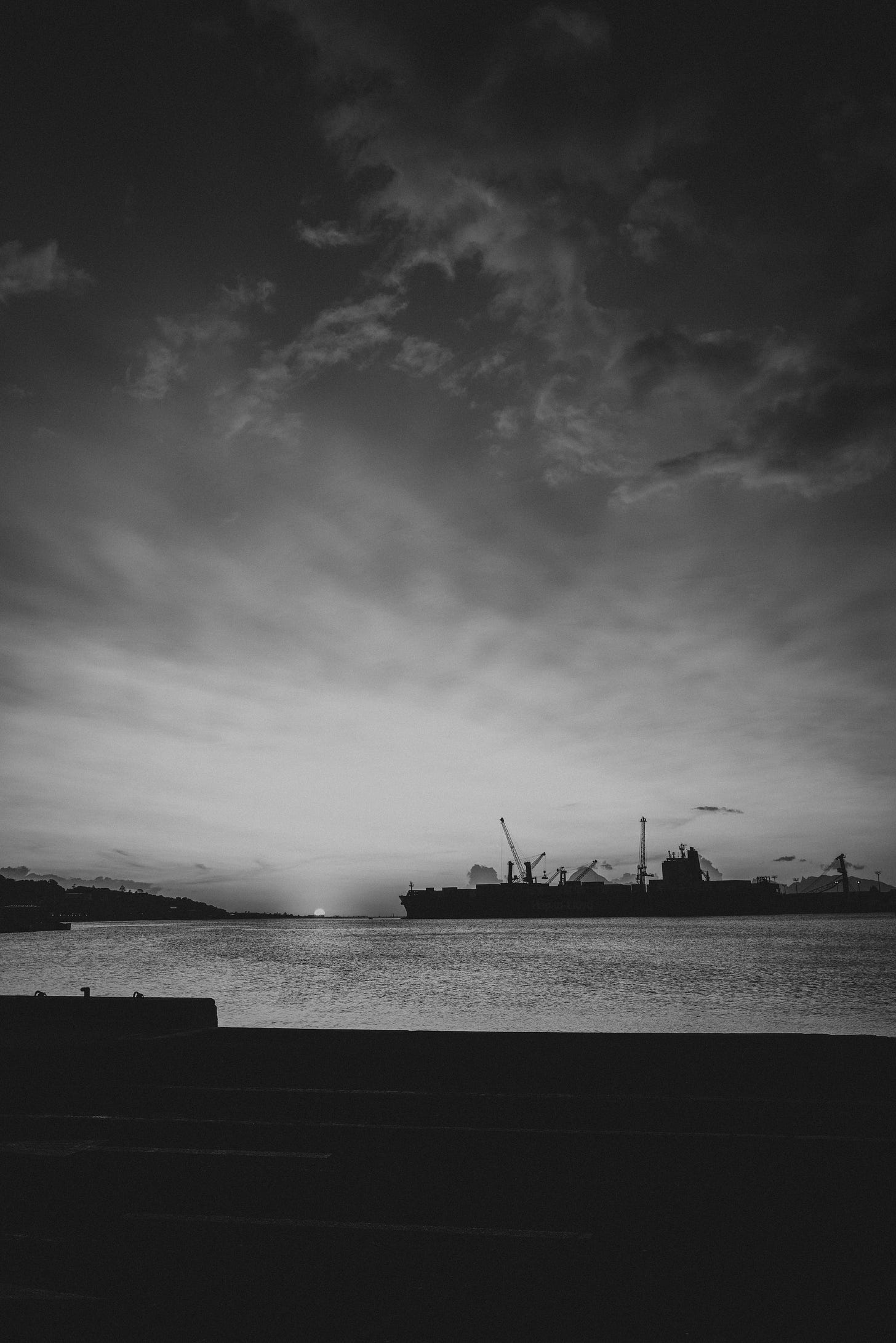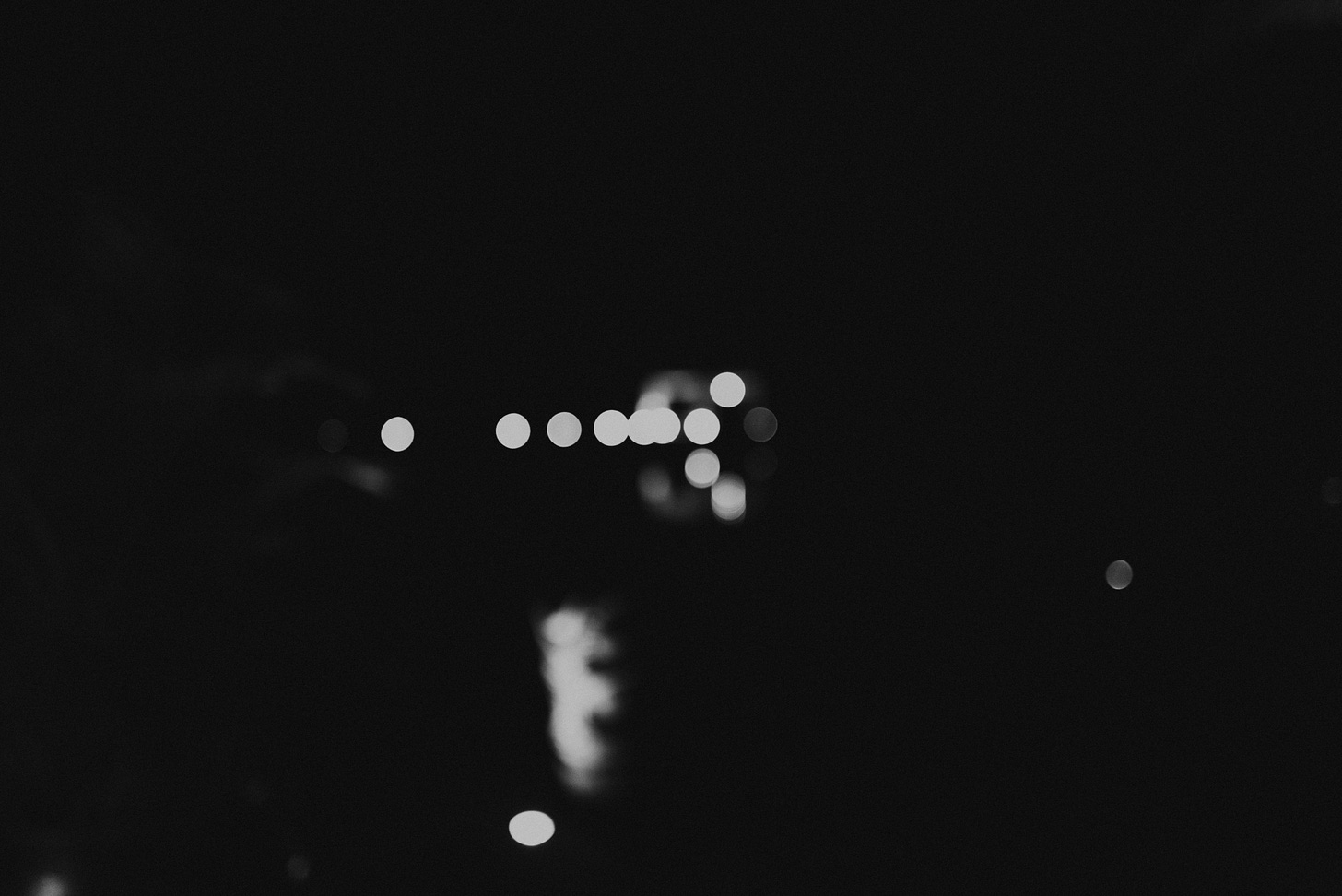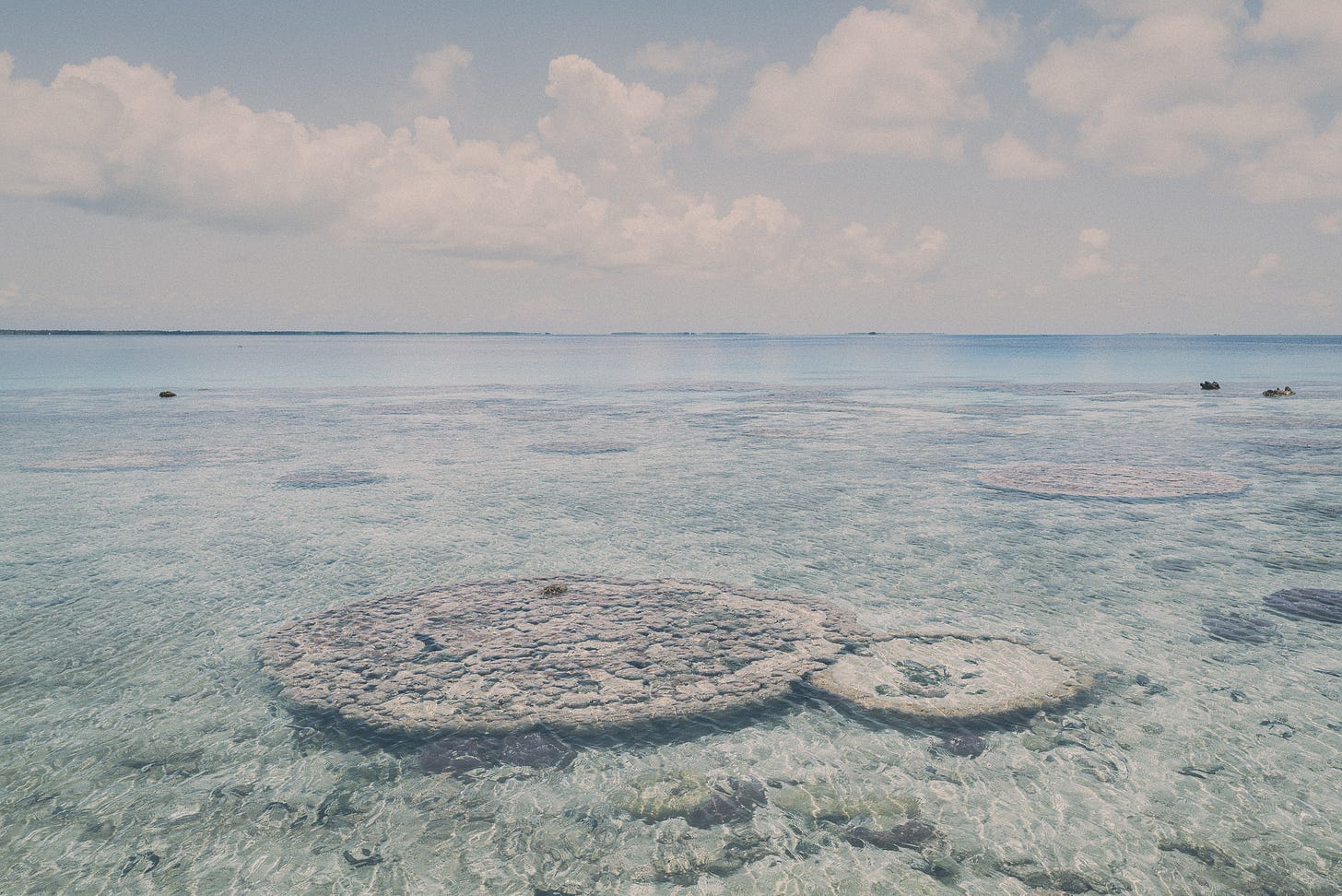THIRD LETTER – SUNSET
2022 FEBRUARY, Tahiti 17.6509° S, 149.4260° W
I can’t decide whether people are extremely intelligent or just bit odd for having invented time.
On one hand, it’s a real measure you can count and use in physics. But on the other hand, it’s entirely relative and a thing of the imagination. Time moves at different speeds depending on where you are. And in your own mind, it becomes even stranger, as linear time vanishes completely. Everything becomes a kind of web of tunnels, and you draw lines here and there.
I’ve noticed some people like to talk about how fast time flies and how short life is. As you get older, you start to see different points in time, and you move between them at the speed of thought. But in reality, there are decades or years between those points – endless, boring days, moments of joy that pass in a blink and deserts of sadness that take an eternity to cross with no water in sight. It all makes time lose its meaning. That’s why I can’t stand the idea of focusing only on those two points, forgetting everything that happens between and around them.
A single breath can last an eternity if you pay close enough attention, especially the last exhale.
Maybe that’s why different concepts of time are so fascinating. Western linear thinking sees time starting at one point and ending at another. Eastern cyclical time just keeps going without a beginning or end. In Polynesia, it seems that time doesn’t really interest anyone, or at least not in the same way.
Time just is. It’s like the weather – you can’t do anything about it, it just is, so there’s no point making a fuss. A storm may come and plans change, or it might not.
The boat might break, or it might not. Sometimes things take more time, sometimes less – yet it’s amazing how Tahitians are always on time.
”Man from the past,” I joke at the start of calls because I’m usually behind everyone I talk to. I look at Tuesday’s moon while someone else thinks about Wednesday’s lunch, though it could just as well be the other way around; we’ve simply agreed that the international date line runs through the middle of the Pacific Ocean. Come to think of it – it’s odd that you can cross the line without any special permission.
I remember fuming years ago at Faa’a Airport on Tahiti because the rental car we’d agreed on wasn’t ready. Our family ended up cramming into a tiny pink car for the day. The next day, I sheepishly realized I had arrived a day too early because I had crossed that line into the past – the night before – and the car wouldn’t be ready until the next day.
I joked about that memory also this time before leaving, yet almost did it again. Our flight was rerouted three, four or five times a couple of days before departure due to COVID-19 complications, so it was uncertain which way around the globe we’d go.
Would we arrive yesterday, tomorrow or today?
I wonder what it would be like to live on an aeroplane. I seem to recall someone in a movie doing that. You could spend your entire life in a perpetual sunrise or sunset, flying with it – or your whole existence could become an endless night. Would you ever wake up?
Imagine if we’d change the date line like daylight saving time. It would really highlight what an artificial concept time actually is. You wake up, and suddenly it’s yesterday, thanks to “day-change day”.
Alan Watts joked about daylight savings, and how people are enslaved by clocks – or rather, by the agreement of time. The clock changes by an hour, and everyone obediently follows along.
But since the day must change into another, and the sun must set for the last time each day, you have to draw a line somewhere. Watching sunsets in Tahiti, it makes sense why the boundary is where it is – it’s the perfect spot for the sun to bid farewell on yesterday.
So this begs the question: Did time get me here or — is it taking me there?
Somewhere on or between the shores,
– Timo –
P.S. Fourth letter will be from the atoll of Tikehau. I consider atolls to be closer to deserts or Icelandic highlands than a tropical paradise. Stay on board to hear why that is so.
The edge of Tikehau’s atoll, barely above the sea, forms a thin ring – like a mouth just about reaching up to the surface to breathe. Where to fix one’s gaze when looking into the distance here? The earth curves, and that tiny patch of land looks almost like a mirage.







